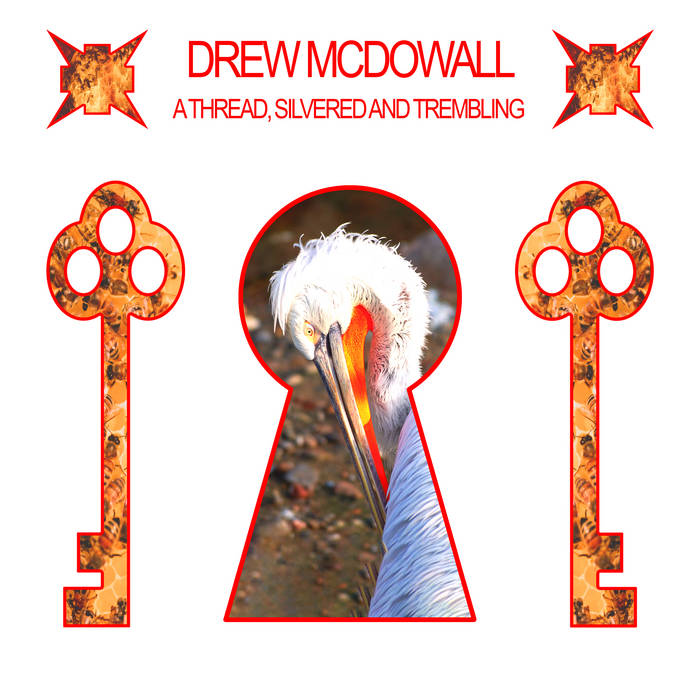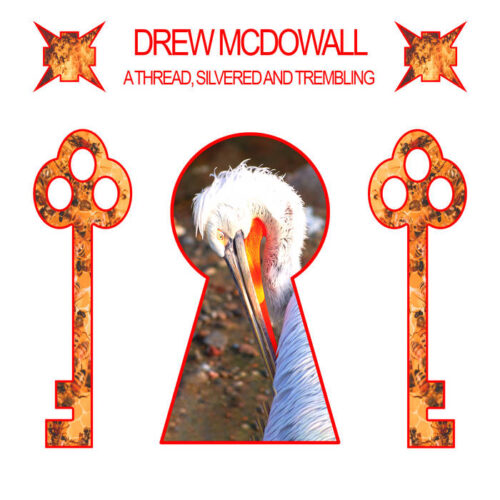This new release from ex-Coil Drew McDowall on Dais Records has a few things that perhaps need framing. While these things are not hugely obscure, they are interesting and give some insight into the sound of these four compositions. Firstly, there is McDowall’s long-running interest in the highland pipe style of Pibroch, which is for solo pipes and generally reserved for funereal and mournful music. Secondly is the apparent preoccupation with the Lyle’s golden syrup branding, which if you’ve never scrutinised a tin, is built around a swarm of bees emerging from the corpse of a lion. The title of the first track on this record cites the text beneath this image ‘Out of Strength Comes Sweetness’. This itself is a reference to Samson’s Riddle from the Old Testament (Book of Judges), where Samson attempts to befuddle some Philistines at a wedding only to have the answer given to them by his wife, them having threatened to burn her and her family. Samson kills thirty people, which begins a long cycle of violence. The riddle of course concerns the swarm of bees Samson discovered in the carcass of a lion he had torn apart with his bare hands. These things are all by their nature cryptic, elusive, brushed by death, and strange. And this is the bedrock of the album.
It is an electro-acoustic world built around violin, viola, cello, harp and French horn, with elusive human voices making ghostly appearances here and there. The processing is actually rather subtle, but unmistakably electric. As a weave of timbres, this album is strikingly beautiful. As a meditation on the Pibroch, the thing I find most satisfying is an incredibly small but hugely effective instability of pitch that breathes through all four pieces. Much as we would find from the changing pressure on a set of highland pipes, these small shifts in pitch make fleeting microtonal dissonance in the music that seems to run through everything. I really like it. Structurally this album is masterful too. The tracks belong together and should be listened to completely.
The first track builds from chiming percussive sounds underset by chordal pads and strange electronic creaks. It introduces us to a world that is eerie and sad. But while it is delicate, it is not gentle per se. The sound is robust and large and its gradual crescendo is as inviting as it is disturbing. When ‘And Lions Will Sing With Joy’ follows, it is with a slightly more industrial feel. Something more metallic emerges and the drones give way to rising sounds that feel somewhere between the winding up of an air raid siren and the mournful wail of the Banshee. How appropriate that the vocals are credited to ‘The Ghosts Who Refuse to Rest’. This music seems to arrive at the ear like a rolling fog that originates at the threshold of death.
‘In Wound and Water’ uses the harp to calm the storm somewhat, but this piece quickly expands into a highly kinetic thing where right and left dance with multiple rhythms and grain and space surge above a subtle but perfectly situated bass, before slowly unravelling to a sinking, swirling harp. We pause briefly before the dark album closer arrives tremulous and creeping. ‘A Dream of a Cartographic Membrane Dissolves’ is the difficult sibling here. There is the recognisable resemblance of family, but the dissonance is bolder, the bass harder, the threat greater. It is absolutely majestic. McDowall is a man with a large and hugely credible back catalogue, and what he has made here evidences well that his experience has taught him so much about form, timbre, structure and musical dynamics that all of us who listen to or make music should recognise and perhaps learn from. Potent and powerful.



